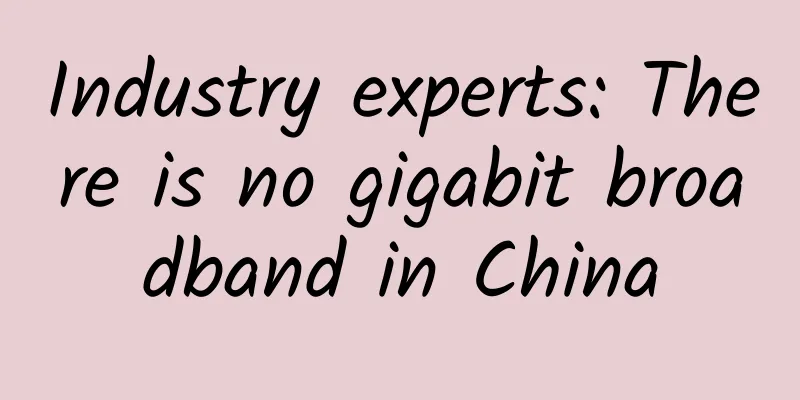Volvo seeks independent listing after seven years of itch

|
For Li Shufu, who has just become the richest man in the automotive industry, in addition to ensuring the successful launch of his new brand LYNK & CO, Volvo's listing plan may be another major issue on his mind. Recently, it was reported that Volvo plans to issue preferred shares to raise another $500 million before its IPO (initial public offering). Including the successful financing of 5 billion Swedish kronor (about $533 million) from Swedish investors in December last year, this is the second time Volvo has sold shares on the open market. The industry interprets this financing plan as the second step before Volvo goes public. Last year, Volvo introduced shareholders other than Geely for the first time, breaking Geely's wholly-owned holding model. At that time, Geely did not say anything; this time, Volvo is discussing the plan to issue preferred shares to shareholders other than Sweden again, which is a standard move for a company before an IPO - Volvo has gone from being 100% controlled by Geely to diversification and decentralization of equity, and there is even a more specific statement that the listing time is set for the middle of this year. However, Geely's attitude is still unclear. Seven years ago, it was Geely that saved Volvo. Now, Volvo has put Geely in a difficult position: if it disagrees with Volvo's separate listing, it will block Volvo's bright future; if it agrees, whether Geely can continue to maintain its control over Volvo, and whether the driving effect of the Volvo brand on Geely will be discounted, these issues are believed to have been placed on Li Shufu's desk one by one and need to be carefully considered. The wings are hard Volvo executives reportedly said the goal of the financing is to go public, but whether to go public will be decided by Li Shufu, the founder of its parent company Zhejiang Geely Holding, and said that issuing shares was just "market speculation." "We will not make any comments on the potential possibility of listing. The decision of listing is made by Zhejiang Geely Holding. As we stated when we issued preferred shares last year, IPO is only an option. However, there are no specific plans at present." A bank official familiar with Volvo's financing plan revealed to the Times Weekly reporter that Volvo is currently discussing where to go public, and the options under consideration include Hong Kong, Shanghai, some regions in Europe, and the Swedish capital Stockholm. In fact, Volvo had been preparing for an IPO a few years ago. Like some companies planning to go public, Volvo announced its financial results every quarter. In addition, it sold bonds twice in May and November 2016, and raised 5 billion Swedish kronor in the form of preferred shares. Although the specific terms of Volvo's fundraising were not announced, Volvo said that the transaction had a "non-substantial dilution effect" on Geely's 100% ownership. At that time, Volvo also clarified that the reason for the share offering was to broaden Volvo Cars' financing channels, increase the company's overall interests and its financial flexibility, and that there was no plan to go public for the time being. However, the Times Weekly reporter learned that in the eyes of many industry insiders from the capital market, with the increase in sales and profits, Volvo's independent listing is a very "natural" thing. Geely is already an expert in capital operation. When Geely acquired Volvo Cars, the vast majority of the $1.5 billion it paid to Ford was not debt financing, but equity financing, with only $200 million being debt financing from short-term notes borrowed from Ford. However, Volvo's refinancing this time was seen by the outside world as a "forcing the palace" on Geely, with the intention of competing with its parent company. It is said that most Chinese investors, even sovereign wealth funds, have been waiting to buy Volvo's preferred shares. Geely's investment Although Volvo was founded as early as 1927, its development has not been smooth sailing. Volvo Cars was originally the passenger car division of Volvo, the largest manufacturing company in Sweden. In 1999, it was acquired by Ford Motor Company of the United States. Volvo retained the commercial vehicle, construction machinery and engine departments. Since then, although they have all used the Volvo brand, they have taken different paths. Since Geely acquired Volvo for $1.8 billion in 2010, the weak century-old brand has achieved the first stage of revival and gradually recovered its vitality. Thanks to Geely's financial support for Volvo, Volvo has made qualitative leaps in design, research and development, marketing and other fields. By 2015, the total sales of Volvo's models worldwide exceeded 500,000 units for the first time in history, and it has achieved continuous profitability since 2014. In 2016, Volvo's global cumulative sales were 534,332 units, an increase of 6.2% compared with 2015. This is also the third consecutive year that the Volvo brand has set a new sales record. As of the end of February, Volvo's cumulative sales in 2017 reached 71,990 units, a year-on-year increase of 5.4%. Among them, sales in China increased the most year-on-year, reaching 20.8%. The momentum is getting better and better, and the independent listing seems to be becoming more and more logical. At first glance, last year's $500 million financing led to the dilution of Geely's 100% equity, but this is not a story of a farmer and a snake. Thanks to an investment plan worth 7.5 billion Swedish kronor, Volvo launched the new XC90 and SUV XC60, as well as an expensive but flexible new car platform. Volvo is currently working with Geely to build a new small car production platform that both parties can use. Some of the investment project funds come from loans provided by Chinese banks. Although Volvo executives claim that they are "not short of money", for Geely, financial difficulties have always been a constant companion during its development. If Goldman Sachs had not invested $330 million in the company, Geely would not have had the chip to win trust when acquiring Volvo. In the past few years since the acquisition of Volvo, Geely has spent a lot of money. In 2016 alone, Geely invested nearly 20 billion yuan in Volvo, including new platforms, new factories, and new technology research and development. The plate is too big and too much investment is made. If it goes public, it means that there will be an additional fixed financing channel and more funds can come in, which will certainly relieve Geely's pressure. Geely has already paid so much for Volvo, and perhaps it doesn't mind more people coming to continue to support Volvo's development. Or a win-win situation Now, both Geely and Volvo have achieved great success in sales and reputation, so why does Geely still want to "sell" Volvo? It can be seen that Geely has learned what it should learn from Volvo's technology sharing platform, and Geely has also helped Volvo return to the mainstream, which can be regarded as a successful win-win situation. In addition, the two platforms jointly built by Geely and Volvo: SPA and CMA have also taken shape. Last year, Geely, which is in the rising stage of its brand, launched its sub-brand LYNK & CO, which focuses on the mid-to-high-end market, and will launch its first mass-produced model this year. At the same time, LYNK & CO 01 also has a large number of common parts with Volvo. In the future, LYNK & CO may be able to compete with Volvo in the luxury car market. In this way, Geely's 100% holding of Volvo will not make much sense. Volvo has now reduced its financial dependence on Geely by enriching its financing methods, which can reduce Geely's financial "burden" to some extent, allowing Geely to free up its hands to build new brands. Although on the 22nd, Geely Automobile (HK.00175) announced its 2016 full-year results, showing that Geely Automobile achieved operating income of RMB 53.72 billion in 2016, and the group's total cash level (bank balance and cash + pledged bank deposits) increased by 63.8% to RMB 15.08 billion at the end of 2016, although Geely's cash flow seems to be sufficient on paper, Geely's investment in LYNK&CO will reach a huge amount of RMB 20 billion. This is a project that requires huge investment in the short term but has a long payback period. In the next five years, this brand will consume Geely's financial resources of several billion yuan. Perhaps Volvo's financing and listing can indeed solve some of Geely's funding problems, whether it is sold in the end or only the equity is sold. However, some analysts pointed out that on the one hand, the R&D cooperation between Geely and Volvo is in its infancy, and Geely's own high-end brand has just been released. Selling it now will definitely affect the cooperation; on the other hand, Volvo is now a profitable company and can no longer be bought for US$1.8 billion. Even if Geely wants to sell it, there are not many capable buyers at present. According to Li Shufu's plan, 2020 will be a key year for Geely to enter the world's top ten automobile companies, and to support this dream, it will inevitably require a steady stream of funds to support it. Volvo's financing and listing, or selling Volvo in the future, can be a way for Geely to solve its funding problems. However, in the view of industry analysts, the running-in between new shareholders, the design of the equity structure before listing, and even the choice of listing location may lead to differences between Chinese and foreign shareholders, which will make Volvo's listing prospects complicated and confusing. In any case, Volvo's independent listing may be a win-win situation for Volvo and the entire Geely Group. On the one hand, Volvo's independent listing will raise more funds. On the other hand, for Geely Group, even if Volvo's independent listing dilutes its shares, the dilution will not be too great, and Geely Group will still be Volvo's largest shareholder in the future. Volvo's independent listing will raise more development funds, which will also reduce Geely Group's financial pressure to a certain extent. As a winner of Toutiao's Qingyun Plan and Baijiahao's Bai+ Plan, the 2019 Baidu Digital Author of the Year, the Baijiahao's Most Popular Author in the Technology Field, the 2019 Sogou Technology and Culture Author, and the 2021 Baijiahao Quarterly Influential Creator, he has won many awards, including the 2013 Sohu Best Industry Media Person, the 2015 China New Media Entrepreneurship Competition Beijing Third Place, the 2015 Guangmang Experience Award, the 2015 China New Media Entrepreneurship Competition Finals Third Place, and the 2018 Baidu Dynamic Annual Powerful Celebrity. |
Recommend
iPhone travel notes: From production workshop to retail store
Beijing time, December 29th, according to foreign...
Let Cook tell you what Apple Watch is
[[128315]] Many people no longer wear watches. To...
Web caching via HTTP protocol
Dear, do you know what cache is? In fact, caching...
It's time to change your chopsticks!
Chopsticks, as one of the necessary tableware on ...
TINCFUWAN 2.0 Smart Cordless Floor Scrubber: A great household cleaning tool for the lazy
The development of the "lazy economy" a...
How can Toutiao quickly gain millions of followers? Here are 10 effective routines
With the rise and prosperity of the mobile Intern...
Git builds a distributed version controller tutorial
Git builds a distributed version controller tutor...
How to optimize the content of website list page?
When operating a project, Feng Chao from Dongguan...
66 reasons for brands to enter the video market!
If short videos have become a red ocean, do mediu...
Four major phenomena have occurred in the real estate market. Is the decline of housing prices in 2020 a foregone conclusion? New information on national housing price trends in 2020
The rise and fall of housing prices is the most w...
Complete list of product promotion channels in 2019!
Many advertisers will ask what channels are avail...
16 Awesome E-Commerce Conversion Rate Optimization Strategies
This article introduces 16 optimization strategie...
World Handwashing Day | Attention! 6 common misunderstandings about hand washing, be careful of "the more you wash, the dirtier it gets"!
Today is World Handwashing Day . Some people may ...
WeChat Search Launches “Service Navigation Page”
IT Home reported on February 7 that according to ...
NAS is seeking change. Can the “0 cost, low threshold” Master Lu stand out?
The rapid development of Internet technology has ...









